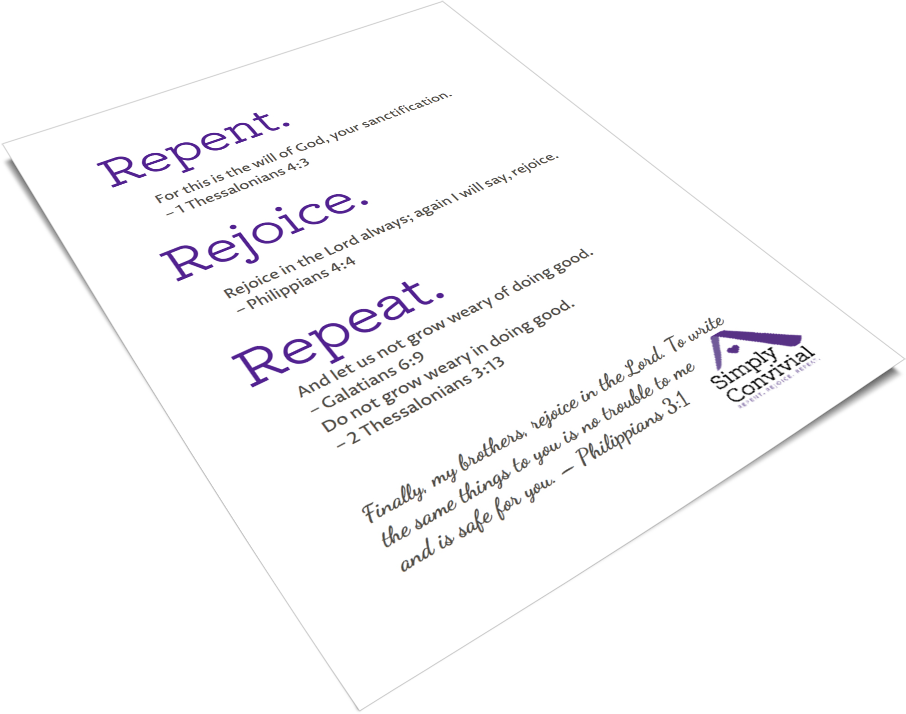When Life Feels Upside Down – an interview with Bethany Barendregt
Posted by admin on
Many moms struggle with perfectionism, often without even realizing that’s the problem keeping them stuck and sad. Bethany Barendregt tells us in this interview how to notice and get out of a perfectionist sinkhole.
Bethany Barendregt is wife to Alex and mama to their five kids ages 6-14. She works from home as founder/creative director for Women Encouraged and hosts their podcast, and occasionally helps as a substitute teacher at her kids’ Classical Christian school. She currently serves at her local church in women’s ministry, planning and leading Bible studies and keeping women connected in God’s word through various means. Bethany is passionate about Bible literacy and enjoys writing and speaking to share hope for everyday life, but she would love nothing more than to sit down for a cup of coffee with you and talk about how the gospel changes everything.
Sometimes our desire to do well at our vocations turns into a desire for perfectionism which leaves us discouraged and defeated. Bethany gives us the truth straight: perfectionism is idolatry we must repent of and replace with worship of our Creator.
You’re not going to do yourself any favors if you cling to idols. Perfectionism leads us into pride and a critical spirit and all manner of other sins. It is not the same thing as a high standard or a love of excellence – both of which must remain submitted to God’s Word.
The following article is a summary paraphrase of our conversation about perfectionism. The full interview is in the YouTube videos that follow. Watch the interview for the full context and real encouragement from Bethany Barendregt.
What would you say to the mom struggling with perfectionism?
As women who desire to do things well, we can fall into the trap of perfectionism. Perfectionism springs from idolizing ourselves and making ourselves and what we want the standard rather than God.
Our perfectionism in the home is rooted in pride and ingratitude and manifests itself in a critical spirit. A critical spirit is not one of the fruits of the spirit. Constantly seeing problems and being nitpicky is not the work of God in you.
We should ask God to open our eyes to the damage our perfectionism is doing to the people around us, starting with the people in our homes. When we turn good things into idols by valuing them too highly (quiet, order, floors without crumbs) it can be hard to see the damage our idolatry is doing. Let go of the idols, they’re not helping you, and they’re hurting you and the people around you.
What does perfectionism look like in our homes?
Constantly seeing pictures of homes in magazines and on social media can make us think that our job as homemakers is to create that perfect photoshoot aesthetic.
But our homes are a gift from God, and it is our responsibility to steward them in a way that brings Him glory. Everything that we have, from our possessions to our stage of life to our own abilities have been given to us by God.
“For who sees anything different in you? What do you have that you did not receive? If then you received it, why do you boast as if you did not receive it?”
1 Corinthians 4:7
It’s not wrong to love beautiful things and to want our homes to be attractive and pleasant, but when we act like we have created it all ourselves and not received it from God we’re indulging in idolatry and pride.
We try to convince ourselves that this desire for perfection is good, godly, even. Doesn’t God want us to have an earnest zeal for making things perfect?
But as people who are still fighting sin in this life, we don’t have the capacity for perfection and demanding perfection from the people around us is trying to make ourselves God.
Why do we want perfection?
Only God is perfect, and we have been redeemed and called to walk in step with Him, not to make everyone else walk in step with us.
Why would we carry the heaving yoke of making everything perfect when we could have the light yoke of walking in obedience to God? We are not called to be perfect here and now, we are called to be faithful in all the work the Lord has given us.
Much as we would like it to be, our sanctification is not instantaneous and painless.
God doesn’t immediately make us more humble or more patient the moment we ask for those things, he gives us situations where we have to practice the virtue of humility or patience.
Don’t miss part two of the conversation with Bethany Barendregt:
Proper pruning of a tree is good stewardship of it because it makes it more fruitful, as does God’s pruning of us. It feels painful in the moment, but God knows what is truly good for us, and gives it to us, even when it’s not what we would choose.
We shouldn’t correct our children and waltz along our way without addressing our own sin.
Take the log out of your own eye first. An attitude of perfectionism often makes us demand perfection from our husbands, children, and the other people around us, while being easy on ourselves and our own sin.
And model confession and repentance to your children. Ask for their forgiveness when you sin against them. Teach them how to deal with sin like a Christian by dealing with it like a Christian yourself.
How do we overcome perfectionism?
The best antidote to perfectionism is to pray. Being in prayer is fruitful and most necessary to our spiritual walk and fighting sin in our lives. We should be thanking God for everything we have been given, and asking him to make us aware of our sinful desires.
So ask God for grace, ask to be reminded of his perfection, ask for an increased awareness of his holiness and ask that God’s goodness and faithfulness would be manifest in your home even when things are not perfect. God delights to answer these prayers.
The Christian life is to repent, rejoice, repeat.
Our pride makes us think that we can be the answer, but we’re not the answer, Christ is.
We are not the standard, God is the standard.
So instead of chasing after perfection, worship God and not yourself.
Keep these truths in mind with this free printable.

The post When Life Feels Upside Down – an interview with Bethany Barendregt appeared first on Simply Convivial.

